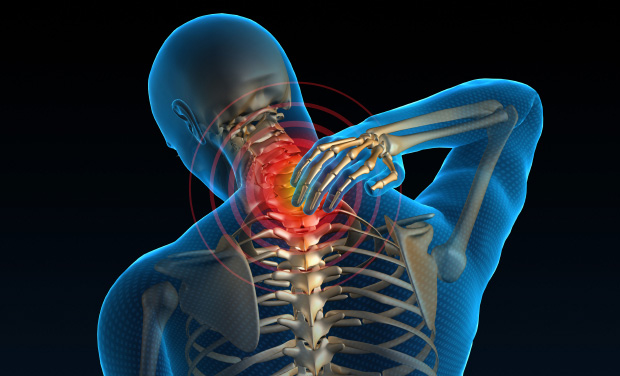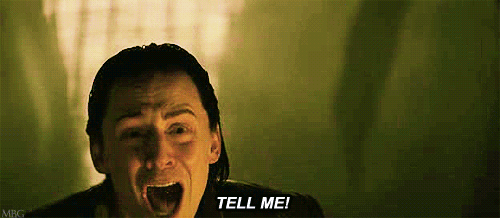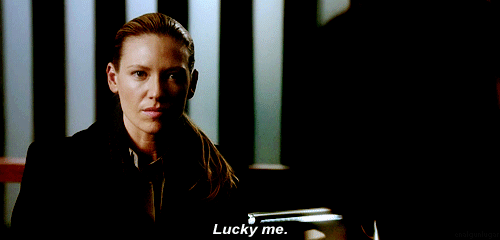I am not denying that hope and positivity can be powerful tools to get past obstacles in our lives. However, absolute positivity is often pushed on chronically ill people. By absolute positivity, I mean that we are expected to never complain, have a bad day, get down about our limitations (or really have limitations at all), become discouraged, or stop believing that we can do anything we set our mind to.
I won’t deny that the pressure to remain positive often comes from a good place or that having a generally positive outlook is important. People think that they are helping by insisting we remain positive. However, forcing constant and absolute positivity on people with chronic illnesses prevents them from sharing their feelings and generally makes their lives more difficult.
Creates Unreasonable Expectations
POTS, an autonomic nervous system condition, has many different outcomes for patients. Some people eventually grow out of it; some others have very manageable cases through lifestyle adjustments, medication, or both. The people who are most often actually given platforms to talk about their experiences with POTS, whether at conferences or by ‘likes’ in Facebook support groups, are almost always the people who grow out of POTS or who have very few limitations after treatment. It is understandable people want hope, but it isn’t realistic or helpful to most people with POTS to only see these people.
Being diagnosed with POTS isn’t the end of a life. People, even with the most severe cases, can still live happy and fulfilling lives, but focusing only on people who have made it “past” their sickness keeps us from realizing this. I know the first few years after my diagnosis I wasn’t happy with small improvements and learning to live with my illness. I was only happy with the possibility of being cured. Anything less meant my life wasn’t worth living.

After years of trying medications and lifestyle changes, it has become obvious my POTS isn’t going away. It is something I have had to learn to live with. While it hasn’t been easy, I have found happiness and meaning in my life. My only wish is that I could have found it sooner. I know that if we as a society focused on realism in the face of disability instead of blind positivity, longshots, and false hope I could have come to terms with this version of myself earlier.
This happens for a lot of illnesses. We need to create reasonable goals and shoot for those. Having hope is important, but learning to live with your reality is invaluable too. We can stay positive that we might end up being one of the lucky ones while learning to live with our current reality. It’s the difference between absolute positivity and staying positive, yet realistic.
Doesn’t Allow Us to Mourn or Process
When people who were previously able-bodied or healthy first get sick they go through mourning for their old life. It is an important process in coming to terms with your new situation, much like it is an important process in coming to terms with a loved one’s death. When absolute positivity is forced down our throats, we don’t feel like we can go through the process of grief.
Having a chronic illness and chronic pain guarantees that there will be bad days- days of frustration, hopelessness, sadness, and anger. On these days, having absolute positivity thrust upon chronically ill people means they don’t talk about these feelings. Instead, these negative feelings get bottled up and not discussed. Psychology experts agree that just suppressing feelings is not the best way to be happy; talking about and valuing all feelings is the best way to be happy.

Prevents People from Getting the Support They Need
When absolute positivity is expected from the people around someone with a chronic illness they lose the ability to seek support from those around them. I’ve heard about it too many times, chronically ill people try to talk to their loved ones about what they are struggling and are shut down, so often in the name of absolute positivity. They are told that if they didn’t “complain” or “whine” about their illness so often that they would feel much better. Sometimes they are brushed off and told that they will get past it and not to dwell. We get reminded that someone out there has it worse. We are told to stay positive as a means to shut us up when what we really need is someone to talk to.
These responses aren’t helpful. Often speaking about something that is bothering us takes its power away. Talking about my conditions, my pain, my frustrations, my struggles with an understanding friend has always made them easier to face. Additionally, dealing with my condition is something I deal with every moment of every day. If someone cares about me and wants to be in my life then it is something that is going to come up in conversation.
Sometimes we need to commiserate and complain about the hard part of our conditions. It can be helpful to our overall mental health; talking to someone who understands (or tries to) is the best solution to me feeling down. Once I am able to talk about the negative parts of my illness and be heard, I am able to move on and actually feel more positive.
Expects Us to be Inspiration Porn- Not People
One form that absolute positivity takes on when applied to chronic illness is inspiration porn. Inspiration porn is co-opting a disabled person’s struggles, accomplishes, and experiences for the sole purpose to inspire able-bodied people. It diminishes a living person to an inspirational image telling able-bodied people if they remain positive they can do anything- because some disabled person was able to go rock climbing!

Disabled people make people uncomfortable. They don’t like to think about the fact that we exist. Turning us into inspiration displaces that discomfort. It expects us to accomplish anything, never complain, always wear a smile, and always have a good attitude. These aren’t even reasonable expectations for able-bodied people. We all have bad days, we need to be able to process and feel negative emotions without judgment.
It Is More Difficult to Get Accommodations
When the expectations for disabled people are that they should be able to do anything with a good attitude it makes them harder to get accommodations. When we are told we should be able to do anything in spite of our condition, we struggle to be put on disability, get handicap ramps, get placards, and get job/ school accommodations. And when we can’t work, walk up stairs, walk across the parking lot to the store, or work/ go to school without these accommodations? It is our fault for being lazy or negative.
Absolute positivity gives people an excuse not to make the world welcome to people who are disabled because people believe anything is possible with a good attitude. But no amount of positivity will help someone who is paralyzed make it up a flight of stairs, but a wheelchair ramp will. Having a good attitude won’t let someone understand who can’t hear, but an ASL translator will. Not complaining won’t lead to me suddenly being able to stand for hours at a job without fainting but accommodations can.

Treating Positivity as a Cure Blames People for Being Sick
Positivity is constantly being forced on me regarding my chronic illnesses. What these people fail to understand is that you can have a positive outlook and still feel negative emotions. Having these normal emotions does not mean I am just not trying hard enough. Feeling your feelings is a good thing! We shouldn’t be blamed for our illnesses not being better because we have human emotions, but we are.
Able-bodied people are obsessed with trying to reason that disabled people are sick because we are doing something wrong. They don’t want to believe chronic illness could happen to them or good people. Assigning blame to a lack of positivity is easier than considering chronically ill people mostly don’t have control over our illnesses. Blaming illnesses that cannot be controlled by the people who have them is just cruel.

We Can Injure Ourselves Pushing Too Hard
When chronically ill people fall into this way of thinking, they can hurt themselves. When people believe they can do anything if they are positive they can hurt themselves. Pushing past limits is dangerous for people with chronic illness and can result in hospitalization or even death.
It is so important for people with chronic illnesses to remain realistic about our limitations. We can even be positive and hopeful while doing so. However, absolute forced positivity is hurting us, our friends, our support groups, and our communities.





























